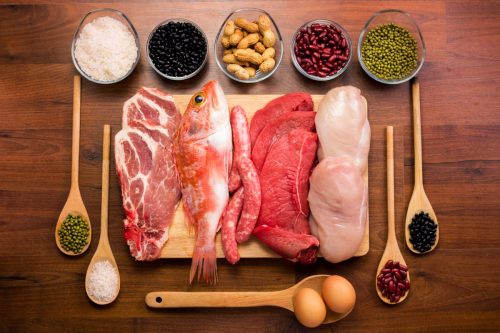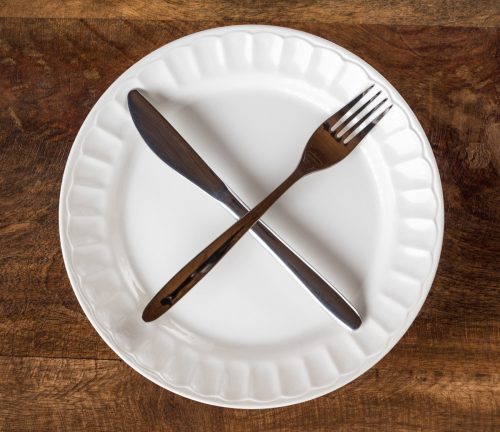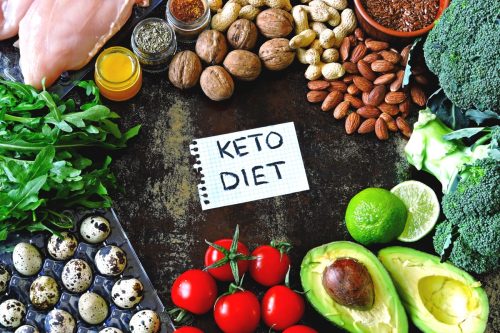Four Unexpected Reasons That You’re Not Losing Weight
It’s not a secret that losing weight It takes determination, perseverance, hard work, sacrifice, and consistency. It’s not as easy as just snapping your fingers to get your ideal body. We would all be able to have our ideal bodies tomorrow. Gallup’s most recent poll revealed that 75% of Americans believe they have the right body. over half of U.S. adults 26 percent want to lose weight and have tried to in the last five years. Weight loss can be frustrating and fickle. It’s understandable to feel frustrated if you don’t see any results.
If you’re looking to struggling to lose weight You’ll feel as if you’re doing what you do “all the right things,” Continue reading. We talked to a doctor and registered dietitian, who shared four surprising reasons that you may not be able to achieve your weight loss goals.
READ THIS NEXT Trying to Lose Weight? Your Success Depends on This, New Study Says.
It doesn’t matter if you are a keto, carnivore or paleo dieter, it is possible to jump from one diet to the next in the hopes of finding a solution. weight loss problems Failure is the result of poor eating habits. For successful weight loss, it is better to develop healthy eating habits and a healthier relationship with food. Fad diets restrict foods and don’t provide sustainable eating habits, leading people to lose their motivation and abandon their weight loss efforts. Research also shows that fad dieting is often not sustainable. nutritionally inadequate Negative body images are encouraged.
“Anytime a diet forces you to eliminate certain foods (especially ones you like), micromanage everything you put in your mouth, or starve yourself, there’s a good chance you won’t be able to stick with it long-term,” ” Amy KillenMD regenerative medicine physician Contact a qualified medical advisor Joi Women’s Wellness. “For long-term dieting success, choose a healthy way of living that includes enough flexibility to see yourself adhering to the program for months or years, instead of days or weeks.”
READ THIS NEXT Doing This for 10 Minutes Twice a Week Spikes Your Metabolism, Doctors Say.

Protein is important for weight loss. It’s high in satiation, making you feel fuller and more satisfied. You may also be more likely to get sick. cravings and overeating You won’t be getting enough protein. The average adult should consume at least 4.5 grams of protein daily. 0.8 grams of protein per kilogram of body weight The amount of protein needed for weight loss will depend on your goals and individual needs.
Trista BestRD, a registered dietitian Balance One SupplementsTells Best Life, “There’s no one-size-fits-all answer to how much protein you should eat for weight loss. However, a common recommendation is to aim for 1.2 to 1.6 grams of protein per kilogram of body weight per day. This equals about 15 to 20 percent of your daily calorie intake.”

If you are stressed or tired, it is more likely that you will succumb to temptations and indulge in high-calorie, unhealthy foods. Studies have shown that stress and lack of sleep can increase your chances of getting sick. obesity and metabolic diseases. “The effects of chronic stress are very similar to the effects of sleep deprivation on weight loss because, like lack of sleep, chronic stress causes elevations in cortisol that can affect insulin and your body’s ability to burn fat instead of store it,” explains Killen.
Try to achieve the minimum amount of recommended seven hours of quality sleep Every night. Killen suggests three things to help you get better sleep and reduce your chances of getting hungry before bed. She says, “Practices like guided meditation, breathwork, nature walks, and journaling can go a long way in helping to keep stress at bay.”
To receive more health news directly to your email, subscribe sign up for our daily newsletter.

This may seem counterintuitive but insufficient calories can cause serious health problems. weight loss. In one example, a large cohort study was published in Nutrients In 2021, researchers examined the relationship between skipping meals (or eating less) and weight gain among more than 26,000 Japanese university students. Researchers found significant weight gain in those who skipped dinner, and that this was correlated with significant weight loss. greater than 10 percent weight gain.
“Skipping meals can cause your body to go into a starvation mode, which slows down your metabolism, leading to weight gain rather than weight loss,” says Best. “Rather than skipping meals, consider eating mini-meals four or five times a day. This can keep your metabolism going without the need for the traditional large, time-consuming meals.”
" Conservative News Daily does not always share or support the views and opinions expressed here; they are just those of the writer."




